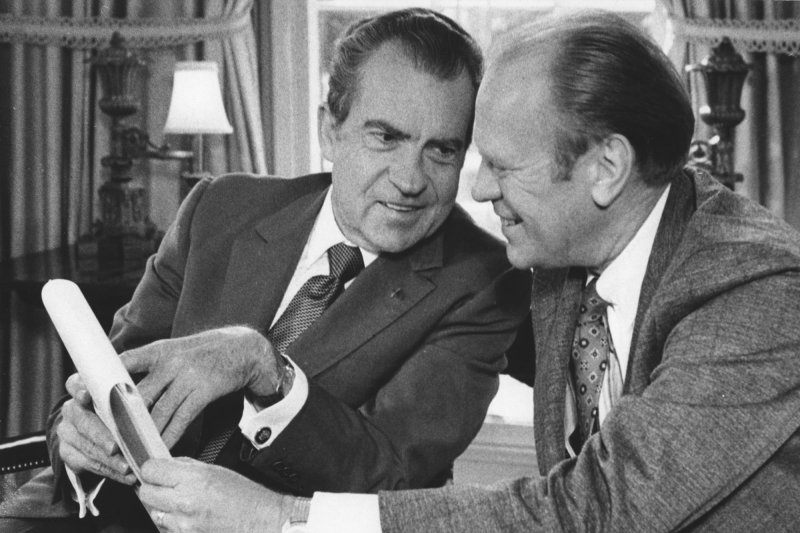UPDATE: On this day, November 17, history marks significant events, but none more riveting than President Richard Nixon‘s bold declaration, “I am not a crook,” made in 1973 amid the escalating Watergate scandal. This statement, delivered during a press conference, underscored Nixon’s defiance as he faced mounting accusations of corruption and abuse of power.
The urgency surrounding Nixon’s remarks reverberates through American history, symbolizing a pivotal moment in political accountability. Just two years later, Nixon would resign, becoming the first U.S. president to do so, forever altering the landscape of American trust in government.
In addition to this critical moment, today also commemorates other impactful historical milestones. On this date in 1558, the Elizabethan Age dawned with the ascension of Queen Elizabeth I to the throne, following the death of her half-sister, Queen Mary. This era would significantly shape Britain and influence global history.
Fast forward to 1800, when the U.S. Congress convened at the Capitol in Washington, D.C. for the first time, marking a crucial step in the establishment of American democracy.
On this day in 1869, the Suez Canal was officially opened, connecting the Red Sea and the Mediterranean, revolutionizing global trade routes and commerce. The canal’s impact on international shipping continues to resonate today.
In 1903, the split of the Russian Social Democratic Labour Party into the Bolsheviks and Mensheviks set the stage for future revolutionary movements in Russia, leading to profound changes in global politics.
A notable pop culture incident occurred in 1968 when NBC infuriated football fans by cutting away from the final moments of an Oakland Raiders vs. New York Jets game to air the children’s movie Heidi. Viewer outrage flooded phone lines, emphasizing the deep connection between sports and American culture.
In 1989, the Velvet Revolution began in Czechoslovakia, ignited by police brutality against peaceful student demonstrators. This uprising ultimately led to the end of four decades of communist rule in the country.
Fast forward to 1993, when the U.S. House of Representatives passed a resolution to establish the North American Free Trade Agreement with a vote of 234-200, marking a significant shift in North American economic policies.
In a landmark decision in 2006, the U.S. Food and Drug Administration lifted a 14-year moratorium on silicone gel-filled breast implants, allowing their marketing once again, influencing the cosmetic industry profoundly.
Most recently, on November 17, 2023, OpenAI made headlines when it abruptly removed CEO Sam Altman from his position, citing a lack of confidence in his leadership. However, less than a week later, the board rehired him, showcasing the turbulent landscape of tech leadership in today’s rapidly evolving market.
As we reflect on these pivotal moments, the resonance of Nixon’s words and the unfolding events in technology remind us of the continuous evolution of leadership, accountability, and societal change.
Stay tuned as we track further developments and their implications for our world today. Share this article to keep the conversation going on these historical events!







